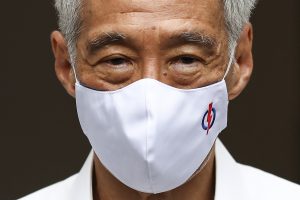Singapore’s 2020 general election saw the opposition achieve its highest number of elected seats in parliament since 1963. Much has been made about the relatively low share of the vote (61 percent) won by the ruling People’s Action Party (PAP). However, observers must also acknowledge that, in the nine elections since 1984, the PAP has secured less than 65 percent of votes in six polls. The more significant outcome of the election was the announcement by Prime Minister Lee Hsien Loong that Workers Party leader Pritam Singh would officially be given the title of leader of the opposition. This development effectively consolidates the WP as the alternative government.
Three structural changes over the last decade have led to this pivotal moment in Singaporean politics.
First, government cash transfers to the population and businesses have had a diminishing effect on Singaporean elections. Since the 2011 elections, the government has adjusted its positioning and policies to increase handouts and training assistance packages significantly. Since 2011, social transfers by the government have increased from $1.6 billion to $4.7 billion, according to Ministry of Finance data. The onset of the COVID-19 pandemic saw a record amount of money being drawn from the nation’s reserves for a variety of income support and training programs. Prime minister-in-waiting Heng Swee Keat was put at the forefront of positive economic announcements, leaving Lee to deal with difficult public health announcements. Despite these efforts, the impact of cash transfers seems to have been muted in this election. This puts Heng in a difficult position. As a former head of the central bank, his premiership credentials are tied to his technocratic ability in economic policy, an area of diminishing political returns. As incomes in Singapore rise, it is likely that greater emphasis will be placed on political, not only economic, goods — voters are looking for a level playing field and parliamentary representation that reflects their views.
Second, voters seem to reject the PAP’s approach to allowing junior candidates to be elected into Parliament by fielding them as junior members of a group representation constituency (GRC) under a high-profile senior minister. In a society where meritocracy is extolled by the government, the idea of well-connected, white-collar professionals being elected on the coattails of experienced politicians has hit a nerve. The backlash against PAP candidate Ivan Lim because of alleged “arrogance” and the PAP’s subsequent decision to stand him down within days of his nomination is a case in point. A similar story played out in the 2011 election, where PAP candidate Tin Pei Ling came under intense criticism for perceived lack of maturity.
The 2020 general election also showed these concerns extend to fourth generation (4G) leaders, particularly Heng. During the 2011 and 2015 elections, Heng was elected to parliament as a junior candidate in a slate anchored by experienced ministers Mah Bow Tan and Masagos Zulkifli. The 2020 election was the first time Heng “anchored” a GRC, and the disappointing results (53 percent of votes) indicate his connection with voters is limited. The “shielding” of Heng seemed to continue in the aftermath of the election — during the 18-minute post-election press conference, Lee dominated proceedings, with Heng (seated next to him) speaking for about a minute. This contrasts with pre-election positioning by Lee, who stated that 4G leaders would “very much be in the thick of things… taking the lead in the sense of setting the agenda, working out the policies, preparing the manifesto, making the pitch to the public, and actively campaigning during the election and organizing the election.” Given the level of responsibility accorded to 4G ministers, the lack of public accountability for the poor electoral showing will add to voter concerns that meritocracy is often applied selectively.
The final reason for the PAP’s decline is what can be called the “Clinton Effect,” which essentially relates to the paradoxical rise in popularity of U.S. President Bill Clinton despite the impeachment proceedings initiated against him in late 1998. Since the 2011 election, the PAP government has erected several legal barriers to opposition success, all of which seemed to create a political environment where voters are more inclined to vote for the opposition. Prominent examples include an ongoing lawsuit against a WP-led town council, tweaking of presidential eligibility rules and the enacting of POFMA, often referred to as Sinagpore’s fake news act. The government’s political attacks seem to have backfired. Aljunied GRC, where the PAP has been accused by the Auditor-General’s Office of lapses in governance and compliance, saw a 9 percent swing against it in favor of the WP. The results indicate that many voters valued the connection with the WP and their ability to speak up in Parliament over accounting issues under dispute.
Moving forward, the PAP will need to consider how to manage the electoral impact of these three trends. By appointing Singh as leader of the opposition Lee has demonstrated awareness of the need for greater political equality. This approach needs to be further extended to institutional reforms to the electoral and legal system that allow for genuine political competition.
Conrad Guimaraes is the Founder of the Asia-Pacific Youth Organisation.
The opinions expressed in this article are those of its author. They do not reflect the opinions or views of any organisations affiliated to the author.

































